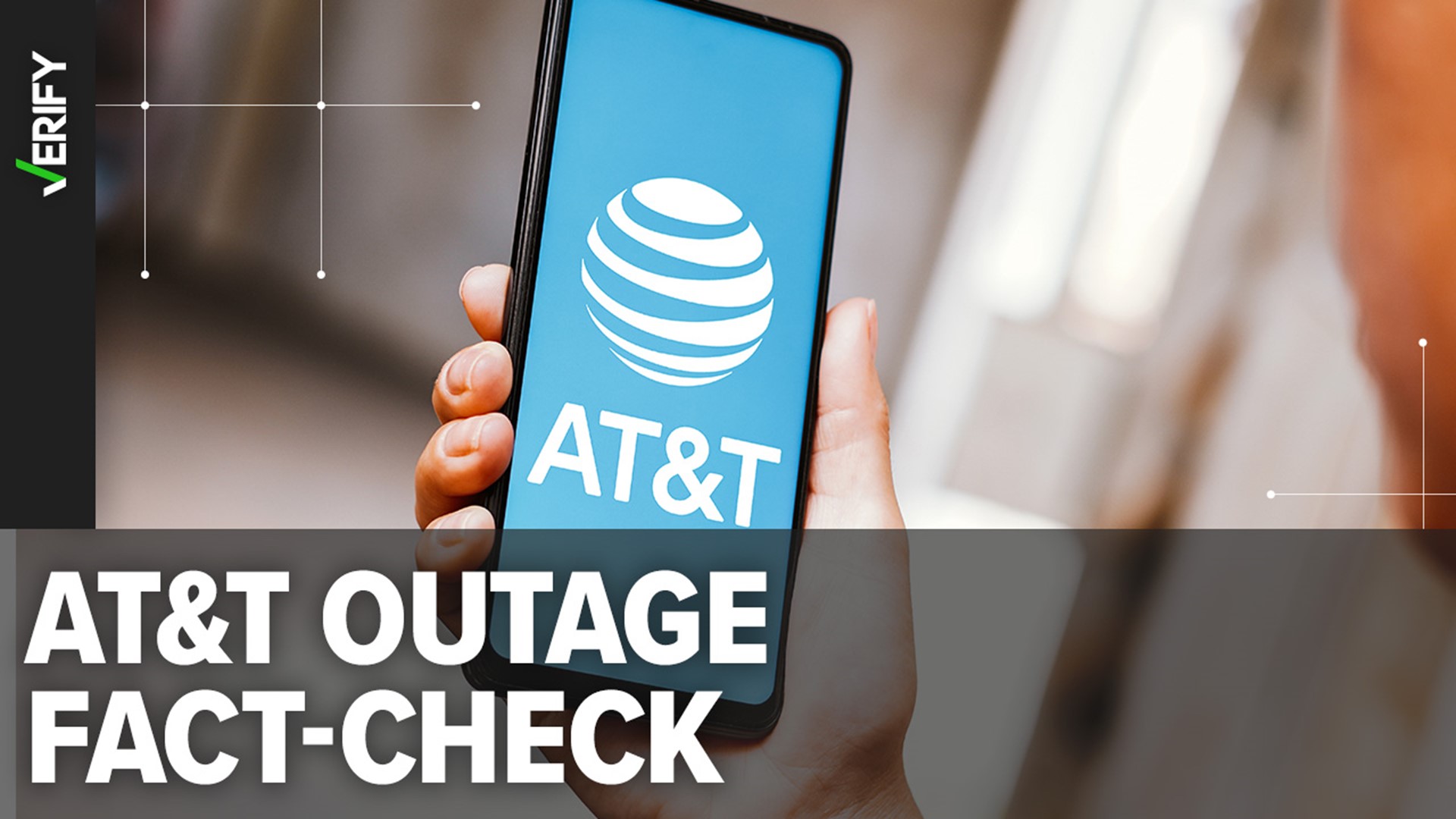UPDATE (4:17 p.m. ET): AT&T has announced it has restored wireless service to all affected customers.
Many people woke up across the country Thursday to find that they had no cell phone service. Cell outages began affecting people nationwide at approximately 3:30 a.m. ET, according to the Associated Press. The outage was still affecting some people through the afternoon.
People on social media have shared that all three of the major nationwide cell carriers — AT&T, Verizon and T-Mobile — have experienced nationwide network outages this morning.
THE QUESTION
Are all three major cell carriers experiencing a nationwide service outage?
THE SOURCES
- AT&T
- Verizon
- T-Mobile
- DownDetector, a website which logs user-submitted reports of problems or outages with cell and web services every 15 minutes
THE ANSWER
No, the outage is only affecting AT&T customers. People with Verizon and T-Mobile plans may have experienced issues when trying to contact AT&T users.
WHAT WE FOUND
Beginning at around 3:30 a.m. ET on Feb. 22, many people began experiencing cell phone service outages across the U.S.. The outage left people unable to make phone calls or send and receive text messages without a Wi-Fi connection.
AT&T is the only one of the three major cell carriers that is experiencing network disruptions. Both Verizon and T-Mobile report that their networks are operating normally.
“Some of our customers are experiencing wireless service interruptions this morning,” an AT&T spokesperson told VERIFY shortly before noon ET. “Our network teams took immediate action and so far, three-quarters of our network has been restored. We are working as quickly as possible to restore service to remaining customers.”
Verizon and T-Mobile, on the other hand, both told VERIFY that issues reported by customers are likely a result of attempting to call or text people who are on another network.
“Verizon's network is operating normally. Some customers experienced issues this morning when calling or texting with customers served by another carrier. We are continuing to monitor the situation,” a Verizon spokesperson said.
“We did not experience an outage. Our network is operating normally,” T-Mobile told VERIFY. “Down Detector is likely reflecting challenges our customers were having attempting to connect to users on other networks.”
During the morning of Feb. 22, DownDetector’s users reported a peak of 70,000 issues with AT&T’s network. Reports of issues with Verizon’s network peaked at around 4,000, and reports of issues with T-Mobile’s network peaked at around 2,000. For context, AT&T’s self-reported subscriber count is 240 million, Verizon’s is over 140 million and T-Mobile’s is just under 120 million.
Other false claims about the nationwide outage
Some people affected by the outage reported that their phones displayed an “SOS only” message on their screen. At least one viral social media post claimed that this message prevents people from making any calls, including to 911.
The “SOS only” message displays on iPhone devices when the phone isn’t connected to a cellular network, Apple says. But the company adds that a device with this message can still make emergency calls.
While some AT&T customers, local governments and emergency service departments reported issues with calls made to 911, this issue is unrelated to the SOS only message and is not caused by it.
Finally, some people on social media claimed the outage was caused by a solar flare, which NASA describes as a powerful burst of energy from the sun. That, too, is incorrect.
NASA reported that two solar flares occurred, one on Feb. 21 and another on Feb. 22, 2024. The second of these two flares occurred at around 1:32 a.m. ET, just before the outage started.
The Space Weather Prediction Center, which is part of the National Oceanic and Atmospheric Administration (NOAA), said that users of high-frequency radio signals may experience temporary signal losses on the sunlit side of Earth.
Since the flare happened overnight, the U.S. was not on the Earth’s sunlit side. Additionally, cell phones operate at much higher frequencies than high-frequency radio signals, which means they wouldn’t be impacted by disruptions to high-frequency radio signals.
NASA, for example, says that solar flares can impact “radio communications, electric power grids and navigation signals.” It does not mention cell service.

